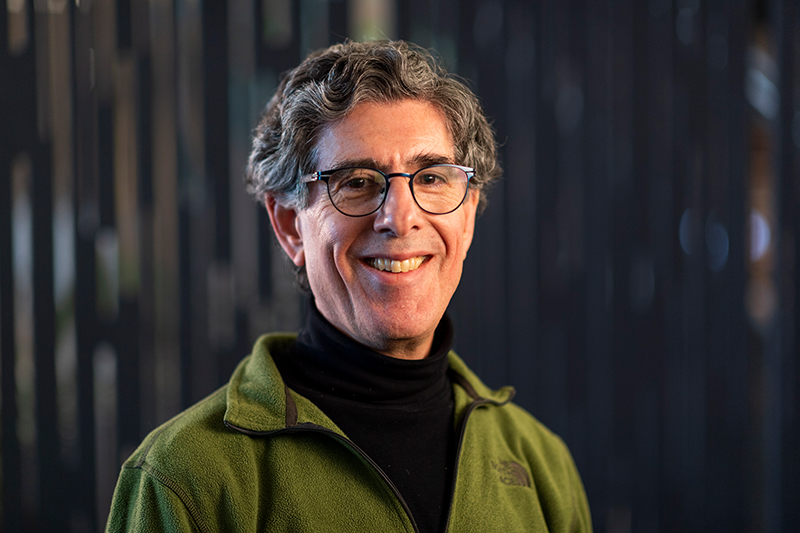Q&A
Dr. Richard Davidson on Reducing Stress

Excerpts from our conversation with Dr. Richard Davidson, an NIH-funded expert on mindfulness at the University of Wisconsin-Madison.
NIHNiH: What would you say to someone who wants to start a mindfulness practice to reduce stress?
Davidson: Well, I would say a few things. One is that one size is not likely to fit all. The second thing I would say is start modestly. And don't try to do too much at once. Because that often sets up unrealistic expectations. One of the things I'm fond of reminding people of is that when human beings first evolved on this planet, none of us were brushing our teeth. And yet today I'm sure every reader of this story brushes their teeth. This is not part of our genome. This is a learned behavior that we've all learned to do for personal physical hygiene. And I think that we can use this as a kind of analogy and metaphor—if we took even as short a time as we spent brushing our teeth each day, doing this kind of simple practice, I think the world would really be a different place. So I think we can start really modestly, three to five minutes, maybe a couple of times a day.
NIHNiH: Are there any important takeaways that you think people in a stressed-out nation need to hear right now?
Davidson: Mindfulness is one component of stress reduction and resilience. But it is not the only component. In order to promote resilience, we really need all four components:
- The first component we call awareness, which is where mindfulness would be.
- The second component is connection. And connection includes the qualities that are associated with healthy social relationships—qualities like kindness and appreciation, empathy, and compassion.
- The third component we call insight. Insight is about self-knowledge. It’s insight into the narrative that we all carry around about ourselves. At the extreme end, there are some people that have a very negative self-narrative. They have negative self-beliefs, and they actually hold those beliefs to be a true description of who they are. And of course, that's a prescription for depression. Part of well-being, and essential to cultivating resilience, is, not so much changing the narrative, but changing our relationship to the narrative—understanding the narrative for what it is, which is really a bunch of thoughts.
- Finally, the last piece is purpose. It's about identifying our true north; our sense of direction in life. And, most importantly, aligning more and more of our everyday behavior with a sense of purpose.
NIH Office of Communications and Public Liaison
Health and Science Publications Branch
Building 31, Room 5B52
Bethesda, MD 20892-2094
Contact Us:
nihnewsinhealth@od.nih.gov
Phone: 301-451-8224
Share Our Materials: Reprint our articles and illustrations in your own publication. Our material is not copyrighted. Please acknowledge NIH News in Health as the source and send us a copy.
For more consumer health news and information, visit health.nih.gov.
For wellness toolkits, visit www.nih.gov/wellnesstoolkits.
